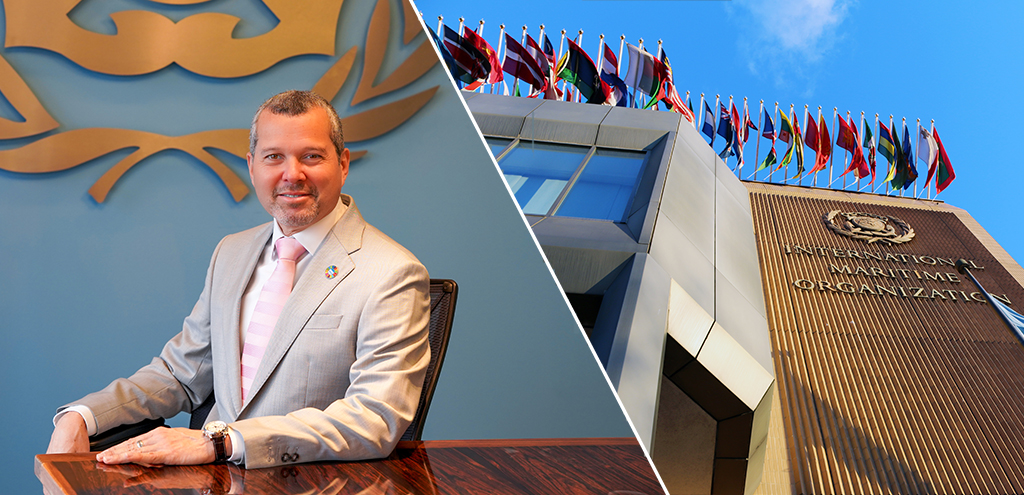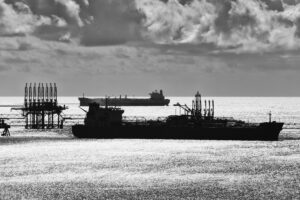A deal to cut global shipping emissions has been abandoned after the US and other nations succeeded in ending the talks. Countries gathered at the International Maritime Organization’s London headquarters this week to decide on whether to make ships start paying for the greenhouse gases they emit each year. On Friday, countries agreed to delay a vote on whether to approve it by 12 months. The IMO’s extraordinary session will be reconvened in 12 months’ time.
After a week of high-stakes debate and U.S.-led opposition, the International Maritime Organization (IMO) voted on Friday for a one-year delay on the adoption of its landmark Net-Zero Framework, a decision environmental groups called a major setback for global efforts to clean up shipping industry emissions.
Natacha Stamatiou, the IMO delegation lead at Environmental Defense Fund, said the delay in adopting the Net Zero Framework is a missed opportunity and a setback that will derail the timeline countries agreed to under the International Maritime Organization’s 2023 Strategy.
“Every delay means that innovation will struggle to scale, inequities will deepen, and the transition to clean shipping will become harder and more costly,” she said. “We cannot afford to wait any longer. It is vital that member states return to the negotiating table and deliver a measure that reflects wise ambition – one that delivers a just and effective energy transition to secure a cleaner, more equitable future for generations to come.”
The Clean Shipping Coalition (CSC) expressed its huge disappointment in the decision by member states to delay consideration of the adoption of the IMO’s Net-Zero Framework for one year and called on member states to use the time to ensure the framework is strengthened and adopted next time round.
“By delaying adoption of its Net Zero Framework, IMO has today squandered an important opportunity to tackle global shipping’s contribution to climate breakdown,” said John Maggs, the Clean Shipping Coalition’s representative at the IMO. “With climate warming impacts being felt everywhere on Earth, kicking this decision down the road is simply evading reality. Governments serious about climate action must spend the next 12 months rallying every nation that supports the framework, convincing those who are on the fence, or opposing, that its adoption is the only sane way forward.”
“However, all is not lost – not by a long shot, as there is an immediate opportunity to slash GHG emissions from shipping, minimize fuel burn and the overall cost of the energy transition and that is to strengthen and make enforceable the Carbon Intensity Indicator (CII), the IMO’s cornerstone energy efficiency measure,” added Maggs. “There’s no time to waste, at MEPC 84 April 2026 member states need to focus all their attention on transforming the CII into the energy efficiency powerhouse needed to quickly right this ship and put it back on route to being a climate solution.”
“While the Net-Zero Framework is far from perfect, adopting it would have been an important step to deliver on the IMOs commitment and send key signals to an industry that was not only asking for a global framework, but actively supported this deal,” noted Maggs.
The IMO said in a brief statement on Friday that member states “will continue to work towards consensus,” using the next 12 months to bridge differences on the framework.
Meanwhile, the Intersessional Working Group on the Reduction on Greenhouse Gas Emissions from Ships, scheduled to meet 20 to 24 October 2025, will go ahead to continue work on the guidelines for implementing the Net Zero Framework.



